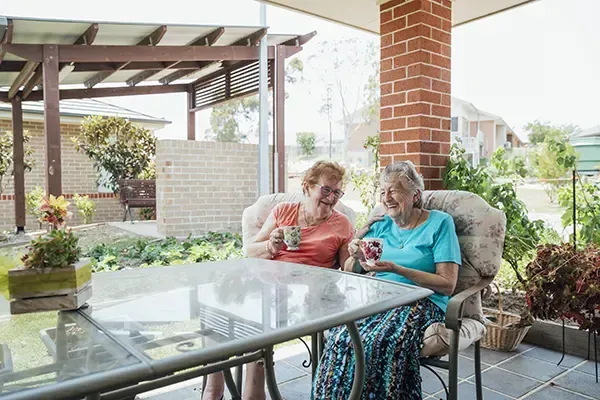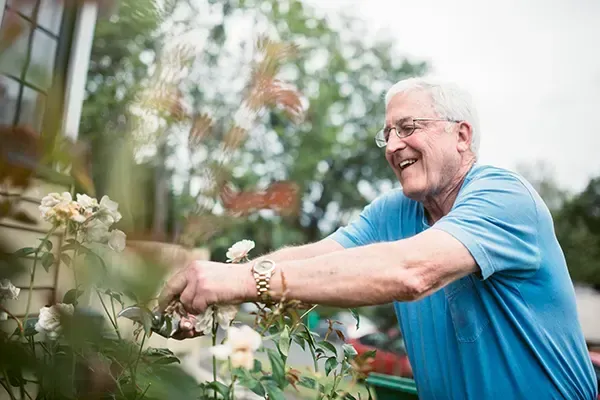How to Have the Conversation About Senior Independent Living
It can feel overwhelming to start the conversation with a parent about moving to senior independent living. Many adult children fear hurting feelings, sparking resistance, or making the wrong choice for their loved one’s future.
These worries are natural, but delaying the discussion can put safety, health, and family relationships at risk. The team at our senior placement agency has helped countless families in Central Florida approach the subject with compassion, clarity, and confidence.
In this playbook, our senior advocates provide practical strategies, step-by-step guidance, and expert tips that make the transition smoother for your parent, and less stressful for you.

How Do You Start the Conversation About Senior Living Solutions?
- Prepare Ahead
- Pick the Right Moment & Setting
- Start with Respect & Speak with Curiosity
1. Prepare First: Facts, Feelings, & People
- Gather essential facts before you speak. Find recent medical notes, a list of medications, and an up-to-date calendar of missed appointments or incidents at home.
- Check local senior living options and their typical costs. AARP has practical moving and downsizing guidance that families find useful when planning a move.
- Identify your team. Name one family member to lead logistics, one to handle finances if needed, and one to offer emotional support to your parent. Keep roles simple.
- Decide what you will offer. Will you help arrange tours, pay for a move manager, or hire help for packing? Be specific; clear offers reduce confusion.
2. Pick the Right Moment and Setting
Choose a calm day, and pick a familiar place where your parent feels safe. A quiet morning or after a pleasant meal often works well.
One short meeting is better than a marathon talk, so aim for 20 to 30 minutes. Keep the first conversation focused on listening and learning, then make follow-up meetings for details.
3. Start with Respect, Speak with Curiosity
- Use "I" statements, like:
- “I’ve noticed you missed your last two medical appointments. I worry about your safety.”
- “I want to help make daily life easier for you. Can we talk about options?”
- Offer choice. Ask permission to share what you found. For example: “May I tell you what I’ve learned about local communities?”
- Avoid arguments about memory or independence. The Alzheimer’s Association recommends communication strategies tailored to their stage of cognitive change for clear & compassionate exchange.
Common concerns and simple responses:
Keep responses short, use empathy first, then move to practical options.
Concern: “I want to stay in my house.”
Response: “I understand. Staying close to what you know matters. What parts of home do you love most?”
Concern: “I will lose my independence.”
Response: “This move is about safety and more free time. You’ll manage your own schedule inside the community.”
Concern: “I can’t afford it.”
Response: “Let us look at numbers together. We can compare current expenses and community costs.”
Scripts for different situations:
If your parent is open:
“I’d like to tour a community with you so you can see daily life there. We can go at your pace.”
If your parent resists:
“I hear you. Could we try a short visit or a trial stay for a weekend? We can return home after.”
If safety is urgent:
“After the fall last week I’m very worried. I want to keep you safe. Can we find a place with daily meals and staff nearby?”
If dementia or serious cognitive decline is present:
- Adapt your expectations. For parents with memory impairment, routine and reassurance work best.
- Use calm language and simple choices. The Alzheimer’s and related dementia guidance emphasizes patience and short, concrete instructions.
- Work with a senior advocate if you can. The role of a senior advisor is to provide objective guidance that helps you navigate care & housing decisions with clarity.
6-Week Senior Independent Living Transition Timeline
Use a checklist and set dates. Below is a clear timeline you can follow:
- Week 1: Assessment
- Weeks 1-2: Research & Shortlist
- Weeks 2-4: Tours & Trials
- Week 6: Make a Decision & Plan the Move
- 1 Month After Move: Set a Routine
Assessment within One Week
- Arrange a health assessment.
- Gather legal documents and financial records.
Research & Shortlist Over Two Weeks
- Call three communities to compare fees and services.
- Request written lists of:
- What the community supplies.
- What the resident must bring.
Tours & Trials within Four Weeks
- Tour with your parent. Observe meal service, activities, and safety features.
- Ask about:
- Visitation rules
- Hurricane response
- Emergency plans
Make a Decision & Plan the Move within Six Weeks
- Hire a move manager or local movers. AARP recommends using move managers for complex moves.
- Create a packing list that prioritizes six (6) most-important keepsakes. AARP suggests asking your parent to name their dearest possessions to guide downsizing.
First Month After Move
- Set a routine for visits and calls.
- Confirm medication management and transportation options.
What to expect after the move:
- Adjustment varies. Some seniors thrive quickly, while others take months. Encourage participation in activities, but keep your expectations realistic.
- Collect feedback. After two weeks, ask your parent these three questions and use their answers to address issues early:
- How is your sleep?
- How are meals?
- Do you feel safe?

4 practical items to handle early:
- Financial check. Confirm direct deposit, automatic bills, insurance coverage, & who has power of attorney.
- Medical continuity. Transfer prescriptions, send medical records, and confirm appointment setups.
- Paperwork. Update address with banks and social security. Keep original documents in a labeled folder.
- Daily comfort. Bring favorite photos, a familiar chair cushion, and a bedside lamp to ease adjustment.
How to manage family dynamics and caregiver stress:
Caregivers often face stress and guilt. Mayo Clinic guidance recommends asking for help and setting boundaries to preserve health.
- Share tasks.
- Rotate visits and chores.
- Keep communication clear.
Hold one family meeting for major decisions. Use an agenda and assign responsibilities. If conflict grows, invite a neutral professional such as a social worker or mediator.
4 Local Resources You Should Consult
- AARP for moving and downsizing resources.
- Alzheimer’s Association for communication strategies and caregiver tips.
- Mayo Clinic for caregiver stress management tips.
- Senior independent living communities for moving logistics and packing lists.
Quick Checklist
- ☐ Collect medical documents.
- ☐ Collect financial documents.
- ☐ Collect legal documents.
- ☐ Name the family lead for logistics.
- ☐ Schedule a health assessment.
- ☐ Call three communities & ask for written lists of services.
- Community 1:
- Community 2:
- Community 3:
- ☐ Plan one (1) short tour.
- ☐ Hire a move manager or movers, if budget allows.
- ☐ Bring six most-important keepsakes.
- 1.
- 2.
- 3.
- 4.
- 5.
- 6.
- ☐ Set a regular visiting schedule.
Get Complimentary Support for Talking to Your Parent About Senior Independent Living
Helping a parent transition to independent living is rarely simple, but the way you approach the conversation can make all the difference. By listening first, addressing concerns with empathy, and offering clear next steps, you create a path that feels safe and supportive for your loved one.
At Assisted Senior Services, our senior advocates are here to guide you through every stage of this process with proven expertise and compassionate care. For complimentary guidance that ensures your family can move forward with confidence and peace of mind,
reach out to our team today.



